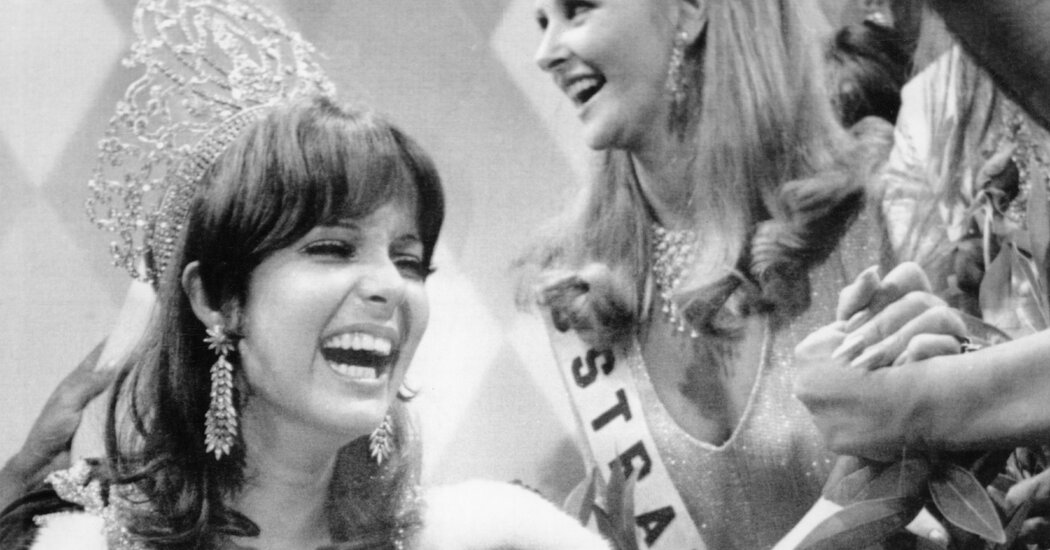
The children moved in with an aunt, and with money tight, Ms. Malaret was forced to work from an early age cleaning houses and windows. “My aunt gave me tools,” she said in a 2012 interview. “She taught me that the essence was in me. ‘It’s in you, it’s in you’, she would repeat.”
She was working as a secretary for the Puerto Rican telephone company when a friend suggested that she try out for the Miss Puerto Rico contest. She agreed, in part because the event was raising money for people with disabilities, Ms. Stroman said. Unable to pay for a gown, she had to borrow one for the pageant, but she ended up winning, setting the stage for the Miss Universe competition.
After she won that crown, she leveraged the burst of publicity it generated to become a television and radio host, most notably on a TV variety show called “Noche de Gala” (“Gala Night”) with Eddie Miró, another popular personality. She also tried her hand at acting, appearing in “Mami,” a 1971 film by the Argentine director Orestes Trucco.
In addition to her daughter, Ms. Malaret’s survivors include her husband, Frank Cué, and a granddaughter. Two previous marriages ended in divorce.
Despite the fame it brought her, Ms. Malaret bristled at the term “beauty queen.”
“She wasn’t the kind of person who talked about the crown,” Ms. Stroman said. “She came up in a time that it was a man’s world. She had to fight to be respected not just for her beauty but for her brains.”
In 1973, she opened a fashion boutique, La Femme, in San Juan with the Puerto Rican actress Gladys Aguayo (who died on Feb. 10 at 92). She moved into publishing in the mid-1980s, her daughter said, editing and helping to found two fashion and lifestyle magazines, Imagen and Caras de Puerto Rico.
To Ms. Malaret, the Miss Universe title not only gave her celebrity status but also entailed a certain obligation. In a 1987 television interview, she looked back at the flag-wavers who turned out in blistering heat to cheer her at the airport and reflected on what it had meant to her fellow Puerto Ricans, women in particular.
“I said no, wait,” she said. “Here is a responsibility that I have toward my people in everything I do.”






